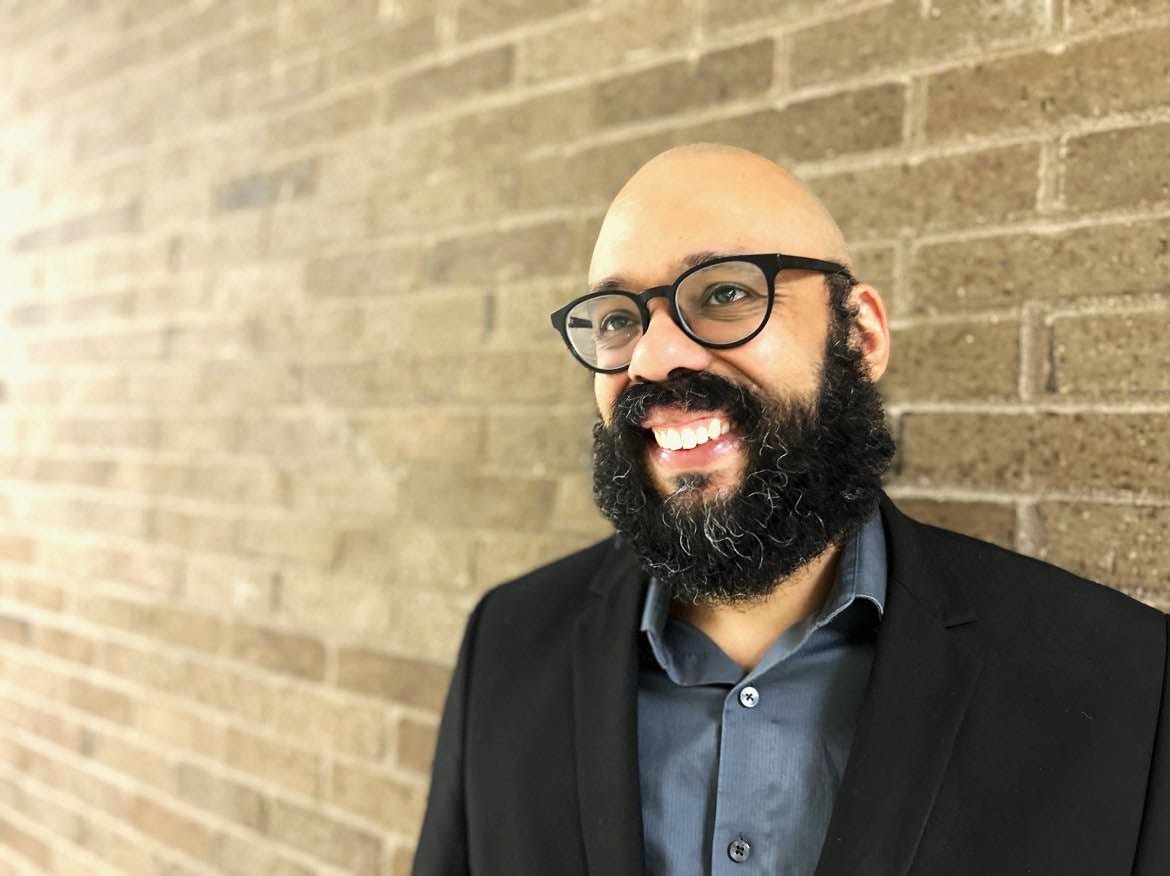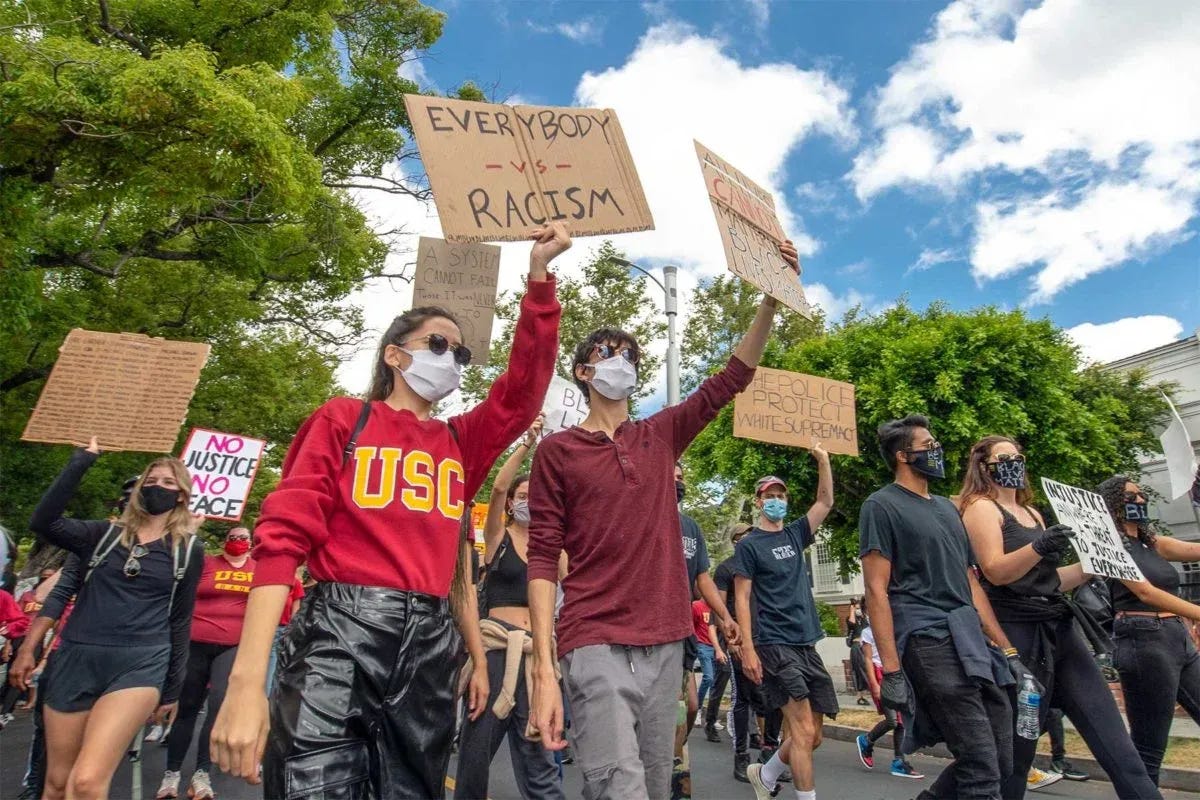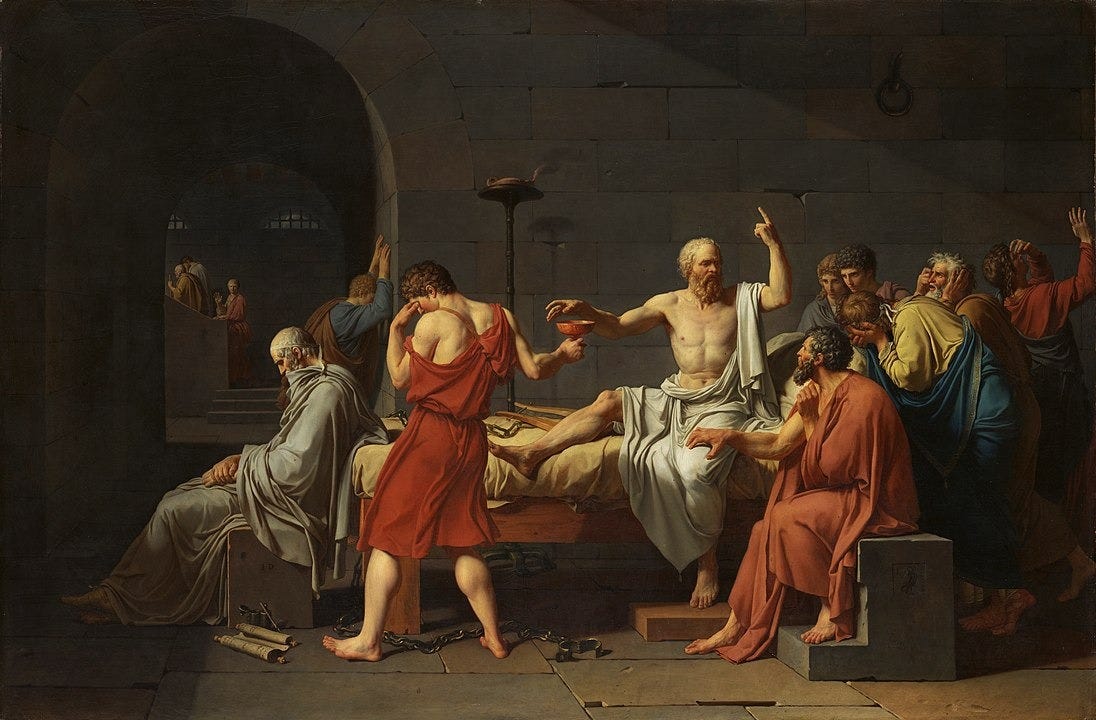Heterodox at USC Newsletter #12
Our first Heterodox at USC event; institutional neutrality comes to USC; an upcoming conference on scientific censorship; and boycotting boycotts.
Welcome to a new academic year! We’re excited to announce our first ever Heterodox at USC event, in partnership with the USC Dornsife Center for the Political Future.
What’s Wrong With Those People? How Ideological Distance Undermines Our Understanding of Political Trends
Tuesday, October 15 | 6pm to 7:15pm | Dean’s Conference Room, Ralph and Goldy Lewis Hall (RGL) 308
Drawing from themes of his new book, We Have Never Been Woke: The Cultural Contradictions of a New Elite, Stony Brook University sociologist Dr. Musa al-Gharbi explores how most scholars and journalists on the "blue" line of political charts lead us to focus inordinately on the "red" line, and often to discuss the people on the "red" line in prejudicial ways — frequently in defiance of our own empirical evidence. USC Price Professor Dr. Michael Thom will give opening remarks. This talk is for USC students, staff, and faculty only.
The room will fit 25 to 30 and we’d love to have a good turnout, so please mark your calendars and forward this invite to any (USC) people you think would be interested.
Institutional Neutrality Emerges at USC
On August 20th, the USC administration issued a letter in which they appear to have adopted a new stance of institutional neutrality. Here is the relevant passage:
This is excellent news and we applaud the administration for taking this step. It was covered approvingly by FIRE and Heterodox Academy. Institutional neutrality has been a central concern of our group since our launch, so we’re going to take a brief victory lap.
However, we also want to encourage the administration to clarify some vital details in order to strengthen this new policy.
When they say that “individual leaders…will no longer post statements or take sides in political or social debates,” are they referring only to the three signatories of the letter? The rest of the USC administration? All forms of leadership, such as deans and center leaders? This should be better clarified so that faculty and staff know the rules.
We also caution that the caveat “…unless it pertains directly to our institutional mission or operations” unfortunately provides an opening large enough to drive a truck through.
Many argue that the university partnering with Israeli academics or offering study abroad programs in Taiwan, for example, would mean that foreign conflicts in these countries do “pertain directly” to “institutional operations” and demand the university make statements in accordance with their preferred political or moral stance. Indeed, one could probably find just about any opening for any social cause to pertain directly to the university’s operation, with enough creativity.
To avoid this slippery slope back into statement making, the university should be aware of this glaring blind spot, plan accordingly, and be prepared to tolerate a lot of aggressive shouting and protesting when calls for comments arise using this tactic. The University of Chicago holds regular trainings and role-playing to assist its community in understanding this policy and USC should probably do so as well.
The Kalven Report and the Heterodox Academy Model of Statement Neutrality can be helpful as USC solidifies its stance. We also recommend this policy have its own website with resources, in the manner of the University of Chicago.
If you have suggestions for things you’d like us to cover, feedback on our newsletter, or want to get more involved with Heterodox at USC please contact us at heterodox.usc@gmail.com.
Censorship in the Sciences: Interdisciplinary Perspectives.
Mark your calendar for our upcoming conference in January, Censorship in the Sciences: Interdisciplinary Perspectives. This event will focus on concerns regarding censorship in scientific research and publication.
When, if ever, does rejection of manuscripts for publication or grants for funding constitute censorship? How much of a role, if any, should ethical/moral issues play in deciding which scientific ideas to disseminate? What are the likely costs and benefits of institutionalized censorship, how do we decide, and who decides, when the benefits outweigh the costs?
Our keynote speakers are Jonathan Rauch of the Brookings Institute and Jacob Mchangama, Founder and Executive Director of The Future of Free Speech. Additional speakers include Jay Bhattacharya, Carole Hooven, Greg Lukianoff, Wilfred Reilly, Jerry Coyne, and many more. To keep up-to-date, please sign up for the conference mailing list.
We’re still seeking funds to cover conference costs. You can make a donation here or, contact Anna Krylov at krylov@usc.edu to learn more about sponsoring our event.
Boycotting Academic Boycotts
The American Association of University Professors recently reversed its decades long general opposition to academic boycotts, stating instead that academic boycotts may be a “legitimate tactical response.”
Voices Against Antisemitism and Anti-Zionism at USC has collected a variety of reactions and op-eds related to this news:
If you oppose this new position, you can sign on to an open-letter “Against Academic Boycotts.” If you have your own stance on this development and would like to share your views, please contact us!
Uplifting and Interesting News from USC
USC welcomes newest Trojans at Coliseum convocation
USC researchers developing new remedies to relieve pain without the risk of addiction
Cannabis use tied to head and neck cancer, reveals USC study
USC-trained doctors inspired Kevin Huoh as a child, so he followed in their footsteps









